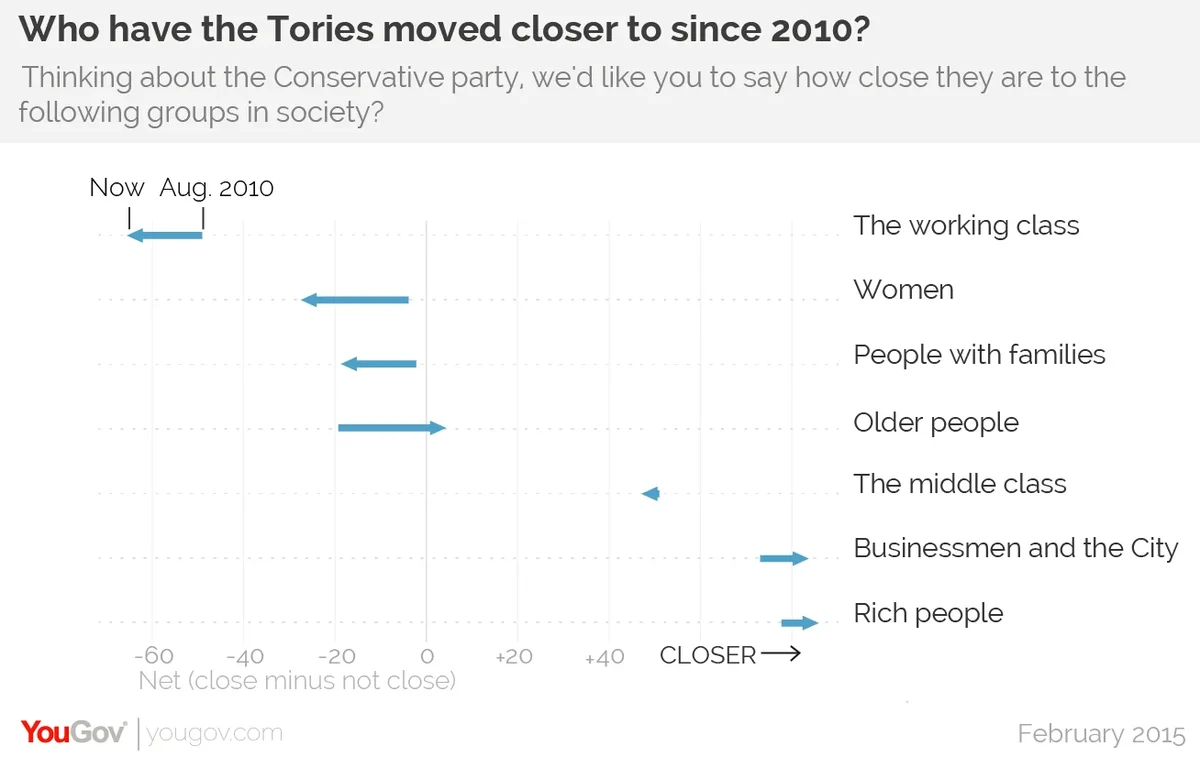The Tories should be pulling ahead, but a reputation as the party of the rich is holding them back
Election campaigns are shaped by the parties' predetermined strategies and by their adaptation to unpredicted events. The first big random story of this campaign has broken for Labour, with the HSBC scandal making the Tories appear as the defenders of super-rich tax-avoiders. Has it had any real effect? The before-and-after polls show no significant movement in voting intention. But maybe that lack of change is actually evidence that Labour's strategy is working, and here's why.
Conventional wisdom says that as the election nears, anti-government feeling is replaced by risk aversion. People can safely express their anger by saying to pollsters that they are voting, say, for UKIP, but when the day of cold reality comes close, and there are just two parties that can actually affect the economy over the next five years, those votes will drift back to their natural home (in the case of UKIP votes, mainly to the Conservatives).
The government has been given real credit by the electorate for its handling of the economy. Labour can only counter that achievement by claiming that the main beneficiaries are the rich. The fact that there has been no significant movement in the polls toward the Tories in recent weeks could be because Labour's charge is sticking. If the economy grows for them but not for me, the voter might say, why should I give them another term?
Our poll earlier this week asked whether George Osborne needed to answer Ed Balls's accusations of going easy on tax avoidance. A no-brainer, of course, and the public said 'yes' by a margin of almost three to one. The interesting thing is in the poll's details: supporters of the Tories said no by an overwhelming majority, Labour and Lib Dem supporters said 'yes', by an even bigger majority – but what of UKIP supporters? It is from UKIP that Tories must regain the votes they need to win the election. But Ukippers were almost as critical as other non-Tories on this central issue. If Labour can keep up their barrage and make the Tories look like the party of the tax-avoiding super-rich, to the detriment of the public services on which ordinary people depend, then the Conservatives will not get back those vital swing votes.
Unfairness, or perception of unfairness, is as important to the voters as practical success in the management of the economy. The HSBC scandal, accompanied by a long line of small but significant communications errors such as the Black and White ball, have led to a notable change in our latest tracker on the Tory brand.
Asked which groups the party "is close to", in the past four and a half years people perceive it to have moved away from women (net -4 to net -27), away from people with families (net -2 to net -18), away from the working class (net -49 to -65), but closer to businessmen and the City (net +73 to net +83) and closer to rich people (net +78 to net +85).

A version of this article was previously published in The Times





